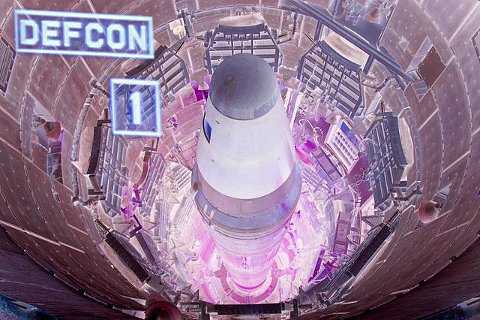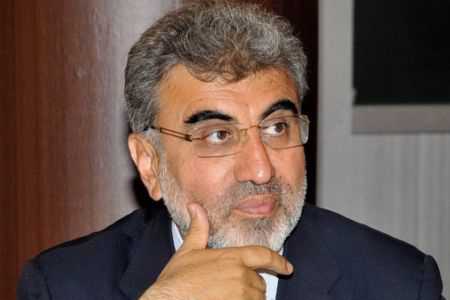 Russia and China have both vetoed a UN Resolution put forward by the United States to use military force against Syria. Both Russia and China know that the uprising in Syria was orchestrated by the United States using CIA mercenaries. Russia and China have always claimed that the United States was involved and the United States was fabricating evidence against Syria in order to get a UN Resolution to use military force against Syria. Today one such fabrication was uncovered when a young woman who the United States government claimed was mutilated and murdered appeared on Syrian TV and identified herself as Zainab Alhusni. The U.S. government’s false report of mutilation and murder stirred outrage and condemnation across the world.
Russia and China have both vetoed a UN Resolution put forward by the United States to use military force against Syria. Both Russia and China know that the uprising in Syria was orchestrated by the United States using CIA mercenaries. Russia and China have always claimed that the United States was involved and the United States was fabricating evidence against Syria in order to get a UN Resolution to use military force against Syria. Today one such fabrication was uncovered when a young woman who the United States government claimed was mutilated and murdered appeared on Syrian TV and identified herself as Zainab Alhusni. The U.S. government’s false report of mutilation and murder stirred outrage and condemnation across the world.
Today it has been learned that BARACK HUSSEIN OBAMA has ordered the CIA controlled Pentagon (Obama appointed former CIA director Leon Panetta as Defense Secretary in May) to ready troops for military strikes against Syria despite the UN Security Council vetoing any military action against Syria. Obama for the second time this year has unilaterally committed US forces to a war that Congress has not authorized. Why is Obama starting wars without Congressional approval? British subject BARACK HUSSEIN OBAMA was illegally put in office by the European bankers in order to cause the economic collapse of the United States. The United States is the last obstacle to enslaving the World under a New World Order.
BARACK HUSSEIN OBAMA has successfully bankrupted the United States so the next step to bring about a New World Order is to start WWIII. Attacking Syria will start WWIII. Syrian President Bashar Assad on Tuesday threatened to set fire to the Middle East, and especially Israel, if NATO (the United States’ surrogate military force) attacks Syria. Assad said: “If a crazy measure is taken against Damascus, I will need not more than six hours to transfer hundreds of rockets and missiles to the Golan Heights to fire them at Tel Aviv.” According to the Fars news agency, the Syrian president stressed that Damascus will also call on Hezbollah in Lebanon to launch a fierce rocket and missile attack on Israel, such that Israeli intelligence could never imagine. “All these events will happen in three hours, but in the second three hours, Iran will attack the US warships in the Persian Gulf and the US and European interests will be targeted simultaneously,” Assad said.
Israel will strike back with a massive nuclear retaliation against “enemy” nations should its existence as a Jewish state be jeopardized through military attack. Israeli leaders created the “Samson Option” in the mid-1960s, inspired by the very first suicide bomber named Samson, who destroyed a Philistine temple, killing himself and thousands of Philistines.
In 1977, after a right-wing coalition under Menachen Begin took power, the Israelis began to use the Samson Option not just to deter attack but to allow Israel to “redraw the political map of the Middle East” by expanding hundreds of thousands of Israeli settlers into the West Bank and Gaza.
To dissuade the Soviet Union from interfering with its plans, Prime Minister Begin immediately “gave orders to target Soviet cities” for nuclear attack. Its American spy Jonathan Pollard was caught stealing such nuclear targeting information from the U.S. military in 1985.
Today, Israeli Prime Minister Netanyahu has put Israel on nuclear alert and is now arming missiles with nuclear weapons. Netanyahu knows that BARACK HUSSEIN OBAMA is preparing U.S. forces to attack Syria with or without UN or Congressional approval. Netanyahu knows the British agent BARACK HUSSEIN OBAMA intends on launching an unprovoked attack against Syria because doing so will spark a nuclear war.
The United States is already at DEFCON 1 “COCKED PISTOL” readiness status. DEFCON 1 means nuclear war is imminent. The United States was put on DEFCON 1 readiness status on September 27, 2011, by BARACK HUSSEIN OBAMA – read PRESS Core article titled “Obama and Globalists converging on Denver Deep Underground Military Base for September 27, 2011“. On September 27, 2011 Obama ordered the United States military, the DHS and FEMA to make ready for a imminent nuclear war.
BARACK HUSSEIN OBAMA and the Federal Reserve bankers (aka the shadow government –
1) The Rothschild Family – London
2) The Rothschild Family – Berlin
3) The Lazard Brothers – Paris
4) Israel Seiff – Italy
5) Kuhn-Loeb Company – Germany
6) The Warburgs – Amsterdam
7) The Warburgs – Hamburg
8) Lehman Brothers – New York
9) Goldman Sachs – New York and
10) The Rockefeller Family – New York) have decided that the time is now to start WWIII.
A DOD / DHS / FEMA Continuity of Operations Plan drill at one of the United States most secure Deep Underground Military Bases located beneath the Denver International Airport was scheduled for September 27, 2011 as a diversion – to deceive the American people. The drill was the cover story to hide the fact that BARACK HUSSEIN OBAMA and the United States shadow government (the Federal Reserve bankers) has ordered the start of WWIII. DEFCON 1 means Obama intends on starting a nuclear war.
Short URL: , 8 October 2011
Maryland-based biotechnology firm Emergent BioSolutions on Monday was awarded a $1.25 billion contract to provide the U.S. government with 44.75 million doses of an anthrax vaccine.
The American people do not realize just how lucky they were on September 11, 2001. 9/11 was a cowardly act of treason by George W Bush and Dick Cheney which resulted in 2,974 fatalities, but if their attack failed the casualties could have been much higher – the entire city of New York could have been lost.
FEMA had deployed to New York City on September 10 to set up a command post at Pier 29, in preparation for a biowarfare exercise scheduled for September 12, 2001. Source http://www.nyc.gov/html/oem/html/news/02_05_22_tripod.shtml
Rudolph Giuliani let the details of BIOWARFARE EXERCISE TRIPOD II slip in his testimony to the 9/11 Commission. In his testimony, Giuliani testified that FEMA arrived in New York on September 10th to set up a command post located at Pier 29 under the auspices of a ‘biowarfare exercise scheduled for September 12. This explains why Tom Kenney of FEMA’s National Urban Search and Rescue Team, told Dan Rather of CBS News that FEMA had arrived in New York on the night of September 10th. This was originally dismissed as a slip of the tongue. Giuliani was to use this post as a command post on 9/11 after he evacuated WTC Building 7. Giuliani knew when to leave WTC 7 because he got advanced warning that the Trade Towers were about to collapse. “We were operating out of there when we were told that the World Trade Center was gonna collapse,” Rudolph Giuliani told Peter Jennings of ABC News.
I wrote about this false flag attack against the United States by the United States’ own government back in Dec 2008 when PRESS Core was called nbGazette. The article was titled “If the attacks of September 11, 2001 failed George W Bush and Dick Cheney had a backup terrorist attack called Tripod II”
Obama is planning another false flag attack against the United States and anthrax is once again a part of the United States government’s plan to mass murder thousands of American citizens if the CIA is unsuccessful in detonating a nuke on U.S. soil.





